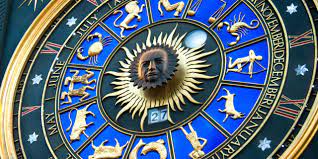Despite the skepticism, Natal Chart reading continues to thrive, especially in popular culture and social media. Horoscopes, short predictions based on zodiac signs, adorn newspapers, magazines, and online platforms, attracting millions seeking guidance or entertainment. The ease of access to astrological readings and compatibility assessments contributes to its widespread popularity.
In recent years, the resurgence of interest in astrology can be partly attributed to its role as a form of self-reflection and guidance in navigating life’s complexities. Many individuals find solace and direction in the personalized interpretations of their birth charts, using them as tools for introspection and understanding.
Furthermore, some psychologists and counselors integrate astrology into their practice, considering it a valuable framework for self-awareness and therapeutic exploration. The symbolic language of astrology often resonates with individuals seeking to comprehend their inner workings and relationships.
However, the reliance on astrology for major life decisions or the exclusion of critical thinking in favor of predetermined astrological interpretations raises concerns. The danger of fatalism, where individuals resign themselves to predetermined outcomes, can hinder personal growth and agency.
Ultimately, whether viewed as a guiding light or a mere diversion, astrology remains a fascinating aspect of human culture. Its enduring presence in society underscores humanity’s enduring quest for meaning, connection, and understanding of the forces that shape our existence.
As astrology continues to weave its way through the fabric of society, the debate surrounding its legitimacy and impact will persist. Whether one perceives it as an ancient wisdom guiding us through life’s journey or dismisses it as an unfounded belief system, astrology, with its enigmatic allure, will likely endure, sparking curiosity and contemplation for generations to come.

